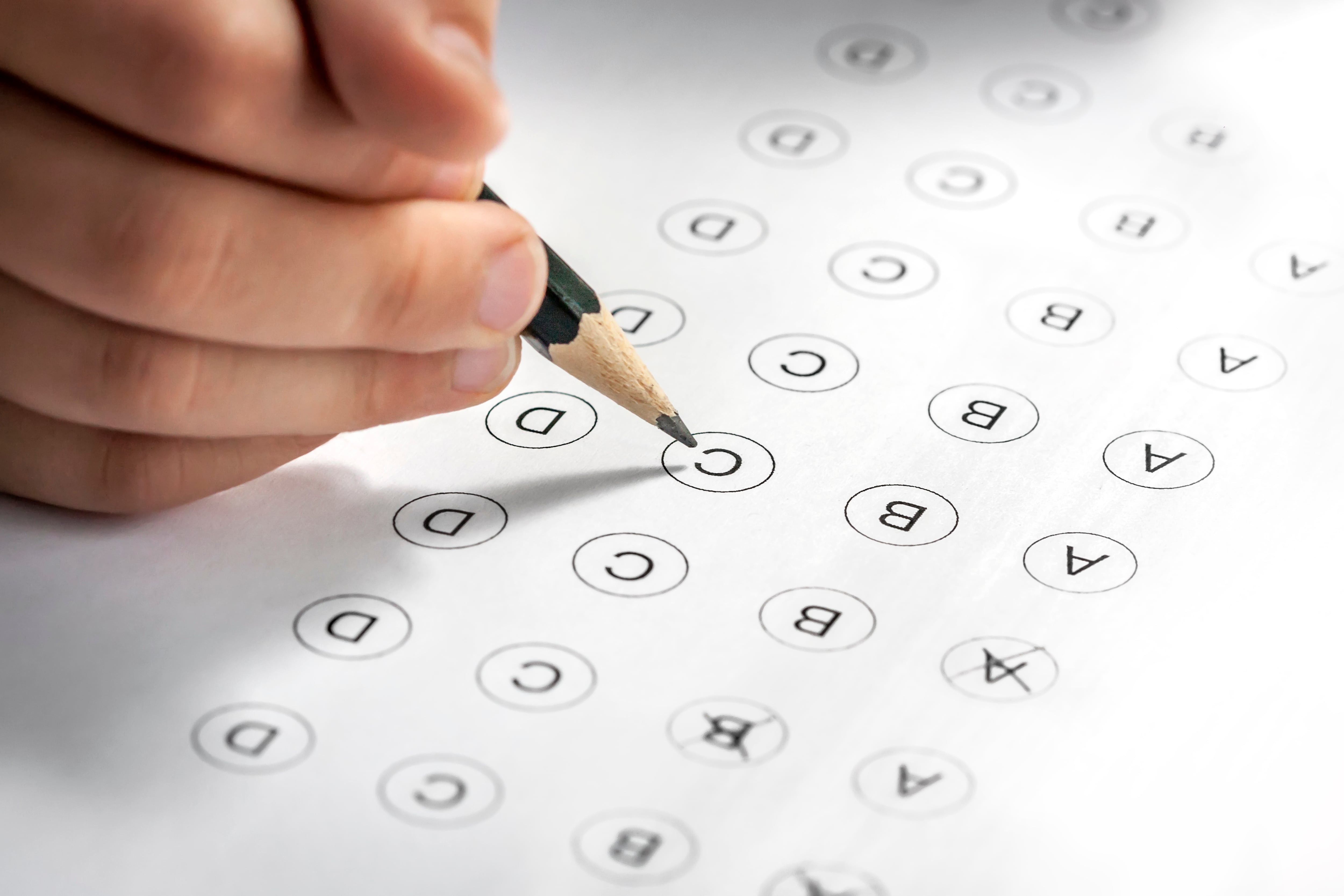Sign up for Chalkbeat Chicago’s free daily newsletter to keep up with the latest education news.
More Chicago public school students in third through eighth grade are proficient in reading than last year, exceeding pre-pandemic levels for the first time, according to preliminary state standardized test scores from this spring.
While the math proficiency rates inched up, the percentage of students who are proficient still lags behind pre-pandemic levels.
The Illinois Assessment of Readiness, or IAR, data released by the district on Thursday shows that 31% of elementary school students in Chicago Public Schools were proficient in reading, compared to 26% in 2023 and 28% in 2019 before the COVID pandemic. The IAR, a standardized test for Illinois third through eighth graders in English language arts and math, was administered in the spring of 2024.
In math, 19% of Chicago third through eighth graders were proficient on the IAR’s 2024 test, a 2 percentage point increase from the previous school year. During the spring of 2023, 17% of elementary school students were proficient in math, but in the spring of 2019, 24% of students were proficient.
A recent study from Stanford and Harvard universities found that Chicago students have outpaced most other districts in reading growth since the pandemic. District officials have pointed to this study in recent months to bolster their argument for more state funding.
The Illinois Assessment of Readiness is administered every spring to students in third through eighth grade around the state. Some school district officials have complained that schools usually receive state test scores in the next academic year when students have entered a new grade — often when it is too late to intervene if a student needs more support.
“We know that state assessments are only one metric, but it’s very satisfying to see yet another sign that our investments in the classroom are yielding positive results, and that students are moving in the right direction,” said CPS CEO Pedro Martinez in a press release.
Black students saw the highest increase in reading proficiency rates with a 6 percentage point increase compared to the previous school year — a jump from 17% in 2023 to 23% this year. Latino students’ proficiency rates grew by 3 percentage points, from 22% in 2023 to 25% in 2024.
The Illinois State Board of Education will release more data from the Illinois Assessment of Readiness in the fall, during its annual report card data release.
In its press release, Chicago Public Schools noted that the district has been able to invest in academic recovery strategies such as professional development for teachers and staff, academic coaches, tutoring, and other resources. Many of the strategies were funded using COVID federal relief funds, which must be earmarked for spending by Sept. 30.
The district said it plans to continue to invest in students’ academic recovery into the next school year, but will need to find new sources of funding as federal funds dry up and the district receives less state funding.
Like many school districts around the state, Chicago Public Schools is still not adequately funded according to the state’s evidence-based funding formula that distributes state dollars to K-12 schools.
Officials have advocated for the state to increase funding to schools in hopes that the state can adequately fund schools by the 2027 deadline written into state law. However, a report from the Center for Tax and Budget Accountability concluded that school districts won’t be funded by 2027 but could reach adequacy by at least 2030 if the state were to increase funding by $500 million every year.
CPS is projecting a $391 million deficit next fiscal year, which begins July 1. A Chalkbeat analysis of next year’s budget found 150 Chicago schools will lose staff positions.
Mayor Brandon Johnson, district officials, and educators went to Springfield during the state’s legislative session to ask for more school funding, but ultimately were unsuccessful. The state approved a budget that included an additional $350 million for the state’s evidence-based funding formula, even though many advocates asked the state to increase funding by $550 million.
Reema Amin contributed reporting.
Samantha Smylie is the state education reporter for Chalkbeat Chicago, covering school districts across the state, legislation, special education, and the state board of education. Contact Samantha at ssmylie@chalkbeat.org.






